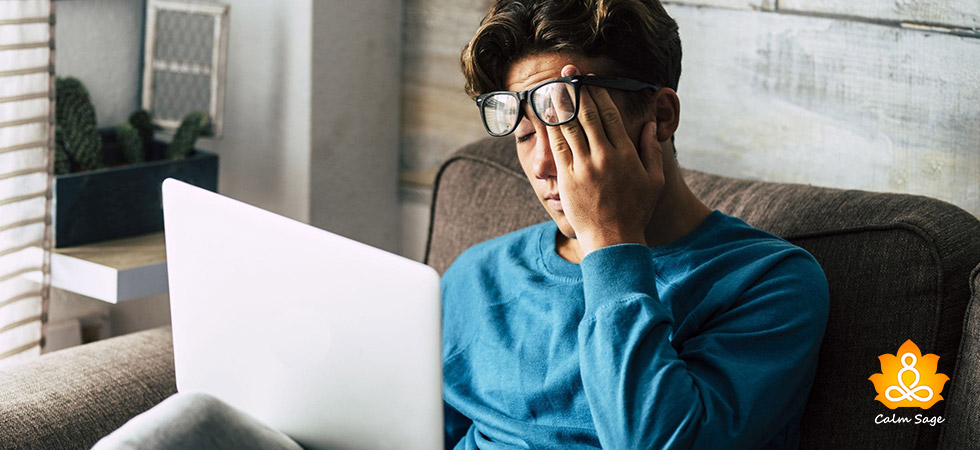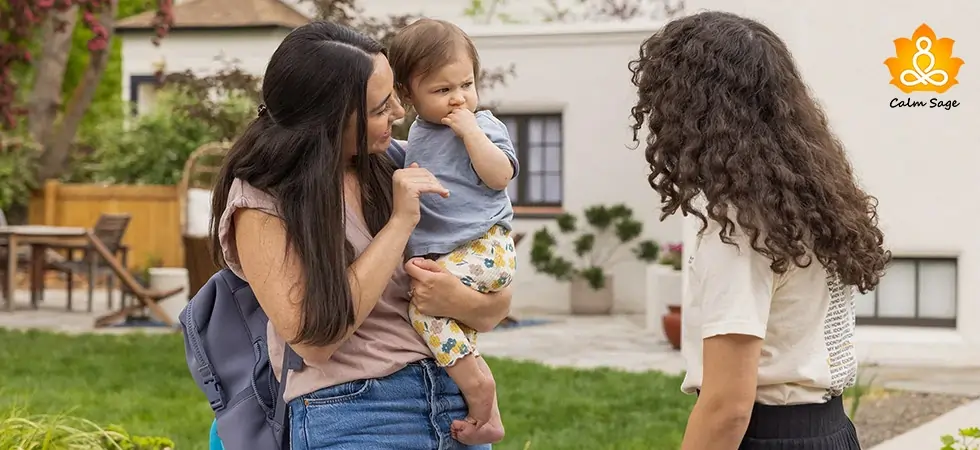Is Your Anxiety Worse In The Evening? Here’s How To Ease Nighttime Anxiety
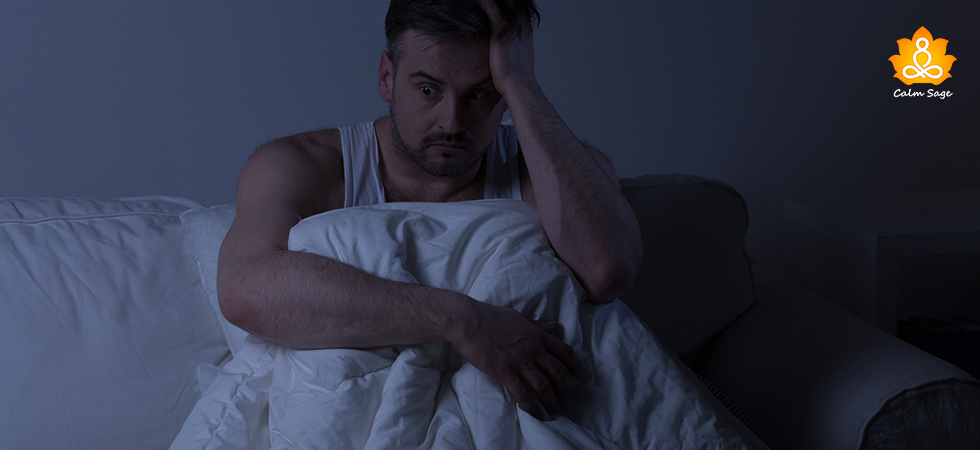
As lights switch off and as you lay in your bed, your mind replays all that you experienced throughout the day. All the conversations that maybe didn’t turn out the way you’d expected. All the intrusive thoughts that you probably didn’t need a replay of as you try to go to sleep.
All the what-ifs that keep you up, running on a loop not easing your worries?
Does this scenario seem familiar to you? Can you relate to this?
Yes? Well, you’ve come to the right place. Dealing with anxiety, regardless of its intensity and duration, can be challenging. When you are unable to manage anxiety, it can follow you into your dreams and can even cause nightmares, restless sleep, and night sweats.
In this blog, I’ll help you understand why your anxiety is worse in the evening, the signs you need to look for, and how you can ease your nighttime anxiety.
What Is Evening Anxiety?
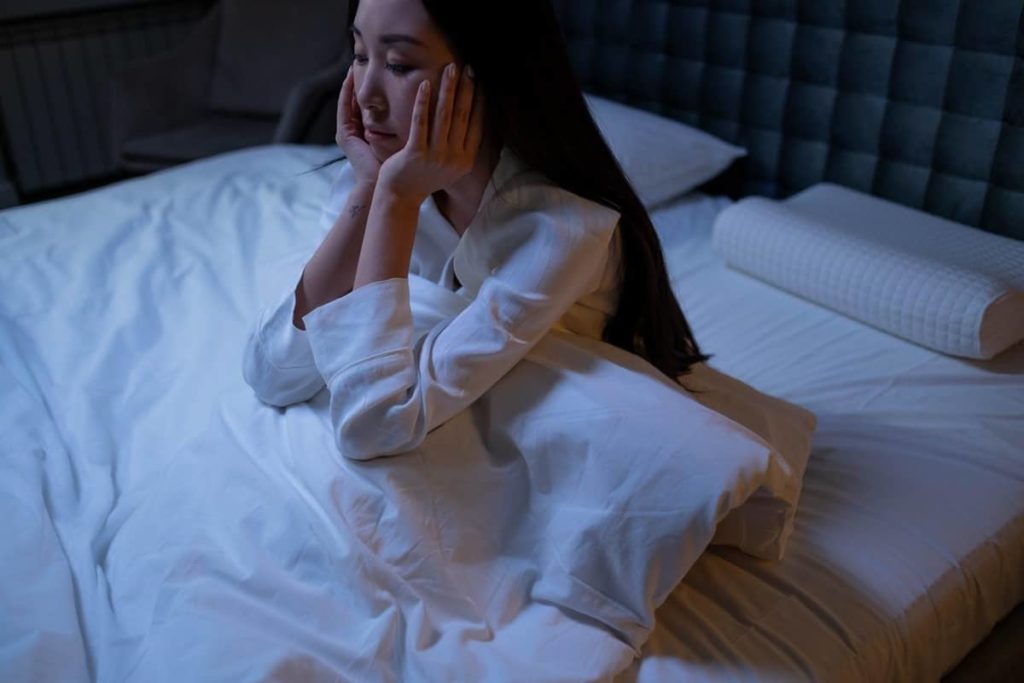
Anxiety is our normal reaction to too much stress and can be described by feelings of nervousness and over worrying. When you experience anxiety for longer than you might’ve anticipated, you may struggle with your daily tasks at home and work.
Evening or nighttime anxiety is not an issue that only you struggle with. Many people with anxiety disorders or severe anxiety face the same. Anxiety at night can cause restless sleep, which in turn, can increase your anxiety.
Evening or nighttime is one of the most common times when you may experience anxiety. Sleep deprivation can be one of the common triggers for anxiety.
Here are some common signs of evening anxiety that you need to look out for:
What Are Evening Anxiety Symptoms?
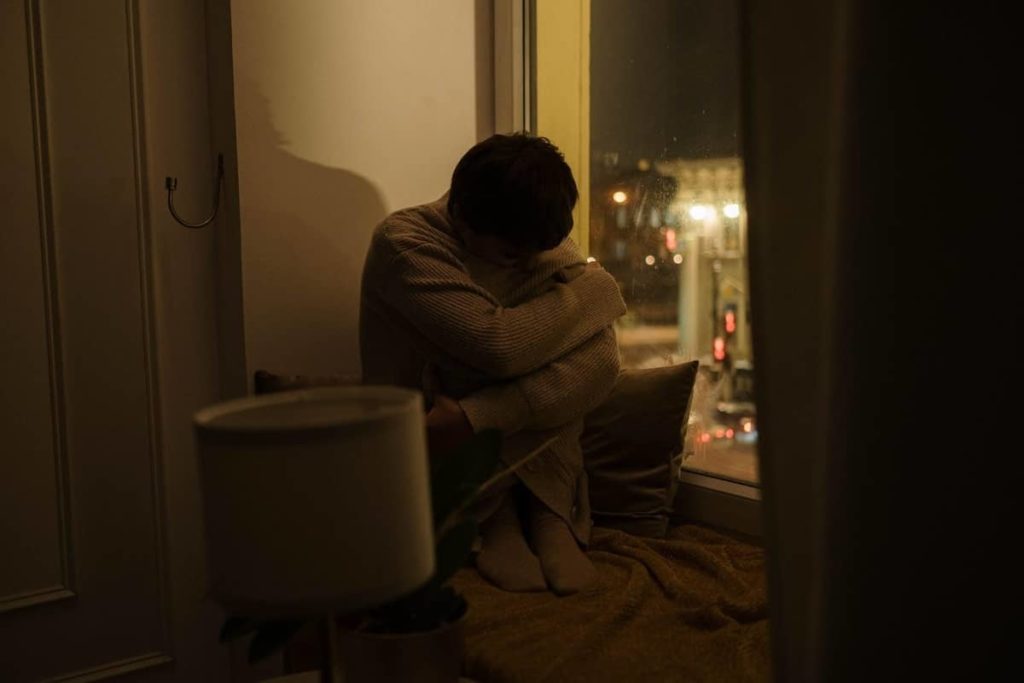
Everyone’s experiences with anxiety are different and specific to them. Bear in mind, the symptoms I may experience may vary from what you may experience.
While some symptoms of evening anxiety can be similar to what you may experience during the day, there are some specific evening anxiety symptoms such as:
- Body ache or pain
- Difficulty in breathing
- Increased heart rate
- Feelings of restlessness or nervousness
- Racing thoughts
- Difficulty in falling asleep
- Difficulty in staying asleep
- Experiencing nightmares
- Gastrointestinal issues
- Nocturnal panic/anxiety attacks
- Night sweats or hot flashes
- Dizziness
Why Is Anxiety Worse In The Evening?
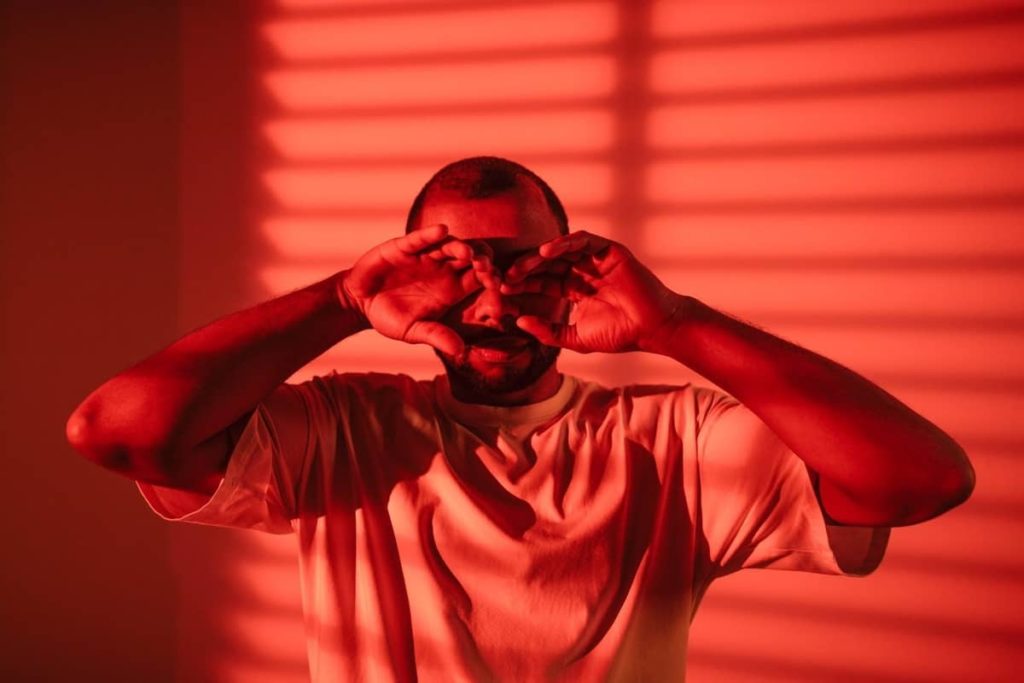
There’s no concrete explanation about why anxiety is worse in the evening or why some people experience anxiety at night. Many factors may contribute to your evening anxiety.
One could be that when lights are switched off and there are little to no distractions, you’re faced with a more possibility to ruminate on your thoughts over your career, job, finance, relationships, etc, and over worry about the little things that probably don’t deserve the worry.
Two, caffeine is another reason that may cause you to experience evening anxiety or anxiety in general. When you drink caffeine right before bedtime, you can expect jitteriness and anxiety symptoms to appear.
Three, if you’ve experienced trauma or are struggling with post-traumatic stress, then anxiety can get worse during the night when your thoughts are on a loop. Also, if you’ve been diagnosed with an anxiety-related medical condition, then it can also keep you up at night.
Other causes of nighttime anxiety can be:
- Post-work stress
- Anxiety-related sleep disorders
- Restless-leg syndrome
- Arguments before bed
- Anticipatory worry about the next day
Anxiety arises when our negative and intrusive thoughts take over. At night, there are fewer distractions to help us deflect from our feelings and thoughts. This or any combination of the above factors can worsen your anxiety at night.
How Does Evening Anxiety Impact Your Health?
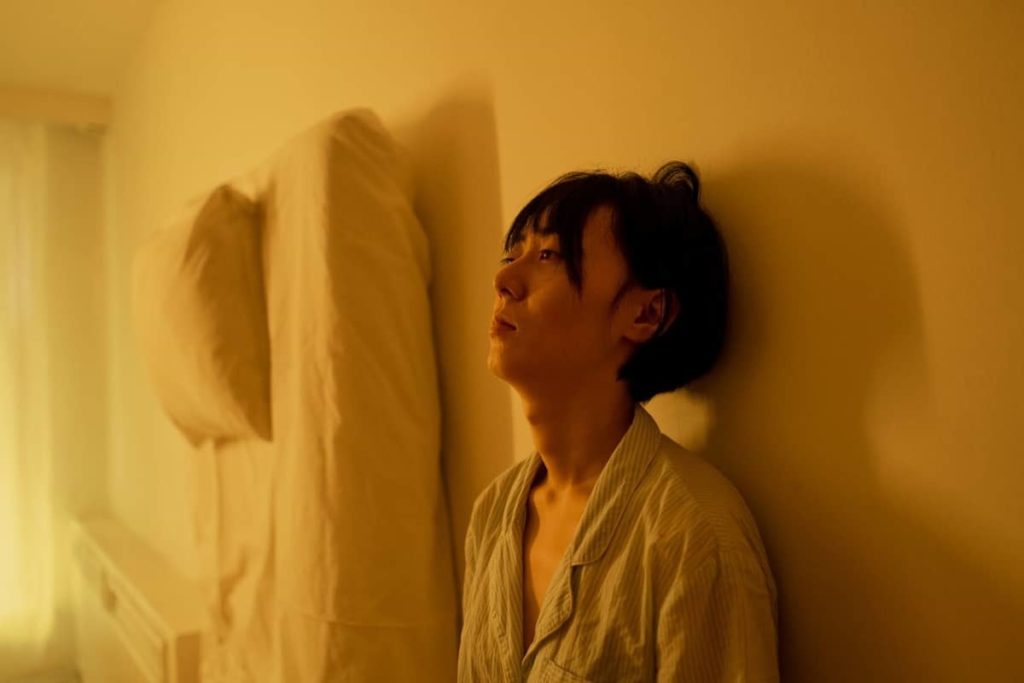
Anxiety at night can be difficult to deal with as it takes away your free time, drains your energy, and leaves you feeling exhausted – mentally and emotionally. Not only this, anxiety at night can cause sleep issues too.
One of the biggest impacts can be sleep deprivation. The lack of sleep can affect your daily functioning, overall health, and contribute to poor quality of life quality. Sleep deprivation can be a vicious cycle that can even trigger your evening anxiety.
Another impact of evening anxiety can be nocturnal panic attacks. Nocturnal panic or anxiety attacks occur during non-REM sleep and can disrupt your sleep. These can leave you feeling drained and fatigued throughout the day.
How To Ease Nighttime Anxiety?
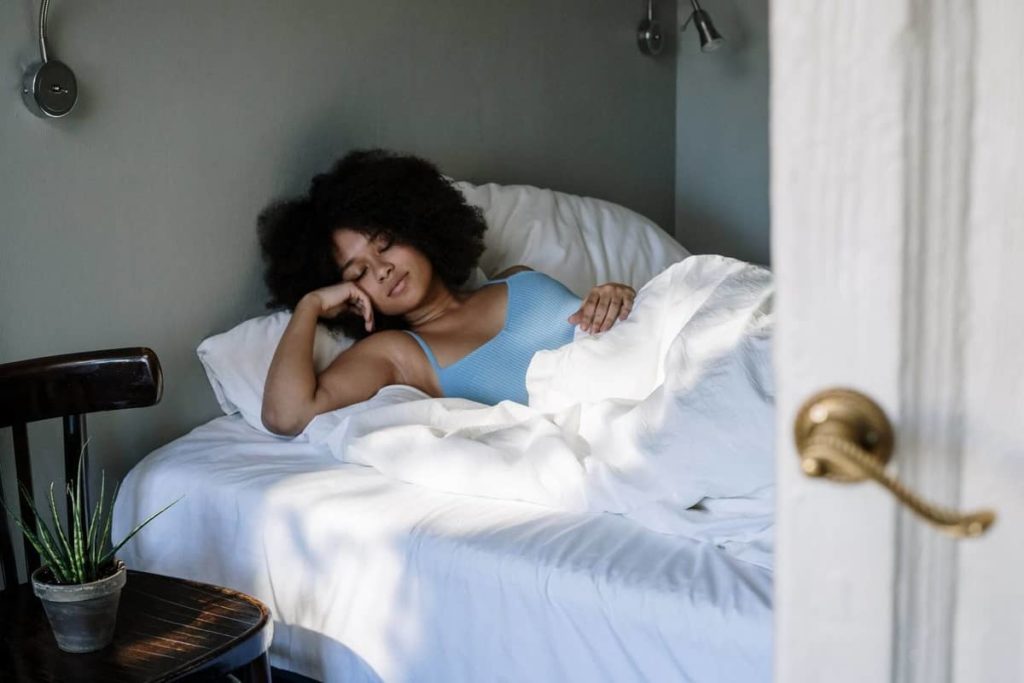
To ease anxiety at night, few self-help strategies can help. If these don’t help, there are professional treatments available too:
1. Set An Intention
We underestimate the power of intentions and it shows. Setting an intention helps you remind yourself to relax after a stressful day. If your intention is clear, you’re more likely to achieve what you want. Start setting an intention every day and see the change in how anxiety affects you.
2. Be Mindful
Worrying about things that have happened or are yet to happen contributes a lot to our anxiety at night. One of the best ways to ease anxiety at night is to learn and practice mindfulness. Learn to live in the present and enjoy what you have at the moment.
3. Work On Transition Time
Transition time is the time you have between different tasks. Like intentions, it’s common to underestimate the power of transition time. Try to give more transition time than anticipated to avoid getting overwhelmed between tasks.
4. Prepare In Advance
Many times, anxiety happens when we worry about the next day. In this case, you should prepare for the next day in advance. Get your things as ready as you can. Pic the clothes you want to wear the night before, what you need for lunch, etc. This can help control your anticipatory anxiety.
5. Unwind Before Bed
Maybe the stress of the day was too much but what did you do to unwind? Regardless of your unwind activities, dedicate a certain amount of downtime every day to just relax and let go. Practice deep breathing, yoga, meditation, read a book, or just curl up in a blanket with a hot cup of tea. Whatever helps you relax, do it!
6. Follow A Routine
Having a bedtime routine also helps in easing your nighttime anxiety. Your routine should be set to help you rest better. Avoid including activities such as scrolling through social media or watching Netflix. Instead, choose something relaxing and soothing to help you lull into sleep.
7. Get Professional Help…
Apart from the above-mentioned self-help strategies, there is professional help available too to help you ease anxiety at night. Cognitive-behavioral therapy (CBT), exposure therapy, and even certain medications can help.
It is however recommended that you speak to a professional therapist before going for therapy or taking any medications. Certain medications can have side effects that can make your anxiety worse.
Writer’s Thoughts
If your anxiety is worse in the evenings and if your anxiety is making it difficult to get a good night’s rest, then it is suggested you seek professional help or consider the above steps.
Remember, anxiety can be treated with the right treatment and making lifestyle changes. A professional counselor can help you learn how to manage your daytime and nighttime anxiety and you can connect with a licensed therapist here.
You can also connect with us on our social media or write to us at info@calmsage.com. I hope this article on how to ease nighttime anxiety helps you. If you found this article useful, then do let me know in the comments below!
Sleep Well!
Take Care!






